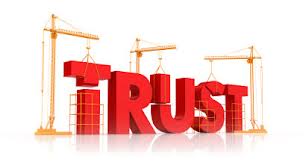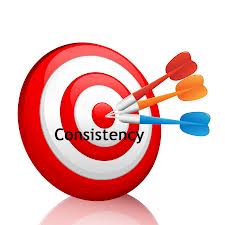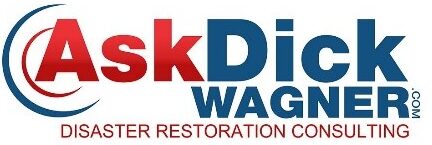
Trust takes weeks, months, and even years to build.
Trust is something that scales; it’s something that we can continue to build on for decades, for a lifetime, or longer. Trust is the investment you cash in on when you print “Since 1870” on your beer label. Trust can take a century to build. Sadly, trust can take seconds to destroy.
Trust isn’t just the most valuable asset that you have at your disposal; it might be your only asset. You can use that trust to find new employees, you can use that trust to build new partnerships, and make sales, but you can’t buy trust with money, and it takes a long time to earn it all over (if you even can) again once you’ve lost it.
 The only way that you build trust is with consistency. It is through our most consistent behavior and attitudes that we develop a reputation that others know who we are and whether or not we can be counted on.
The only way that you build trust is with consistency. It is through our most consistent behavior and attitudes that we develop a reputation that others know who we are and whether or not we can be counted on.
In a B2B scenario, consistency can refer to consistent follow-up, consistently ensuring that every web page we design for a client is just as good as the last one. In marketing, consistency might mean turning away that major client who wanted you to disobey the do-not-call list in your telemarketing efforts so that your other clients know that you can be trusted not to associate their brand with invasive advertising techniques.
In the classic Tarantino film Jackie Brown, Samuel L. Jackson’s character is asked about a girlfriend of his who is always trying to double-cross him. Questioned on why he keeps her around, Jackson replies “Well you can’t trust Melanie, but you can always trust Melanie to be Melanie.” This is an example of the kind of trust that you don’t want to earn, but if you consistently fail to complete a project on time, if you consistently release poorly tested products, if you are consistently inconsistent, reversing your position on everything on a near-daily process, this is the kind of trust that you’ll earn: we can be one hundred percent certain that you’re not going to deliver on your promises. Your customers, your employees, your friends, and your family all learn who you are and know your reputation. It must be consistently good!
 You don’t build trust with big product launches. You don’t build trust with expensive ad campaigns. You build trust by doing the right thing every day, even when there’s no glory in it. You build trust by consistently being there for your customers and your partners and your clients. You build trust by always telling the truth in your marketing campaigns, even when the truth isn’t flattering. You build trust with a reliable customer service department. You build trust with reliable products and services and by honoring your warranties and your promises to the market.
You don’t build trust with big product launches. You don’t build trust with expensive ad campaigns. You build trust by doing the right thing every day, even when there’s no glory in it. You build trust by consistently being there for your customers and your partners and your clients. You build trust by always telling the truth in your marketing campaigns, even when the truth isn’t flattering. You build trust with a reliable customer service department. You build trust with reliable products and services and by honoring your warranties and your promises to the market.
You don’t build trust with the big moves, you build (or lose) trust with the small moves, being reliable, and offering some kind of real accountability when you do fail to fulfill the promises that you’ve made. It’s about consistency. It’s not about just impressing people, it’s not about blowing everyone away, it’s not about joking with the press at a conference or showing up to the meeting in your new convertible, it’s about doing right by the people you deal with on a daily basis. It’s even about making it “right” when you’ve screwed up.
Impressive product launches are great, there’s something to be said for showmanship and big, game-changing ideas, but if your whole business plan rotates around impressing people enough that they give you all their money, then you’re not a businessperson, you’re a con-artist. A businessperson, a true capitalist, is here for the long haul, and that means putting in the footwork, doing the little things that need to be done every day in order to build trust, and doing them consistently.
To put the importance of consistency into just one sentence: Nobody ever won Husband of the Year by “not cheating all that often.”
 It’s not the sexy, exciting, or glamorous part of running a business or hiring people or earning clients or maintaining a marriage or raising a child, or making friends, it’s just the most important.
It’s not the sexy, exciting, or glamorous part of running a business or hiring people or earning clients or maintaining a marriage or raising a child, or making friends, it’s just the most important.
Within an organization, when the owner or managers continually change the rules, continually modify the program, and regularly throw a monkey wrench into the plan, all that’s generated is chaos, resentment, and ultimately a staff with low morale, lack of motivation, and potentially failure of your business.
It’s OK to have your business plan or strategies be a living document – constantly tweaking a few little things to get it perfect. This will even be necessary since the world, our culture, and society are constantly changing. However, the wholesale dramatic major changes you make every few days or weeks in your organization will take a huge toll on the effectiveness and eventually the profit and survival of your company. It will also cost you, good employees.
It doesn’t have to be “slow and steady,” you just need solid, reliable, dependable consistency.
Dick Wagner is a Marketing Coach and Consultant 419-202-6745
